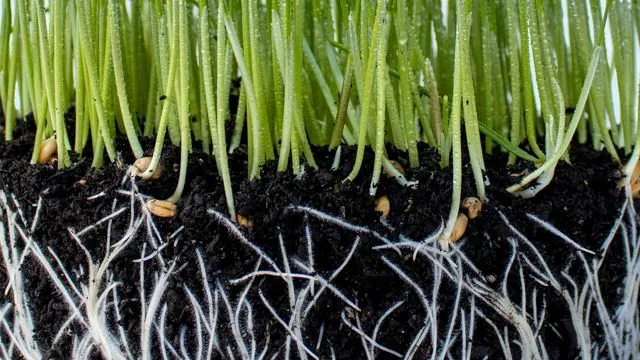
Unearthing Plant Secrets: How Soil Bacteria Boost Growth by Taming Immunity!
2025-01-06
Author: John Tan
Introduction
In a groundbreaking study, researchers at Princeton University have uncovered a remarkable link between soil bacteria and plant growth, revealing how these microorganisms help plants navigate the delicate balance between growth and defense against pathogens. This connection, which has puzzled scientists for years, may hold the key to enhancing agricultural productivity.
The Dilemma of Growth vs. Defense
Plants are constantly faced with a dilemma: they must grow to thrive but also defend themselves against harmful invaders like bacteria. Traditionally, the mechanisms that govern this balance remained largely elusive. However, a team of engineers led by Jonathan Conway at Princeton has pinpointed a role played by benign soil bacteria that cluster around plant roots.
Key Findings from the Study
In a study published in *Cell Reports*, the researchers demonstrated that certain soil bacteria can significantly influence a plant's growth by modulating its immune responses. Specifically, these bacteria produce enzymes that can suppress a plant’s immune activity, allowing roots to grow longer and more robust than otherwise possible.
Research on Arabidopsis
This research addresses a major unanswered question in biology regarding how microbiomes interact with host immune systems,” Conway explained. The study particularly focused on Arabidopsis, a small flowering plant often used in plant research due to its genetic tractability. The researchers engineered Arabidopsis to have heightened immune responses, particularly against a component known as flagellin, which would typically trigger immune reactions.
Impact of Bacterial Presence
In laboratory experiments, seedlings exposed to flagellin exhibited stunted root systems, as their energy was diverted towards immune responses rather than growth. However, when these seedlings were grown alongside 165 different bacterial species isolated from the same plants, the results were astounding: 41% of the bacterial isolates allowed the plants to overcome this immune-induced slow growth, effectively promoting root elongation.
The Role of *Dyella japonica*
One particular bacterial species, *Dyella japonica*, emerged as a standout in promoting root growth. The team's investigations revealed that this strain employs a secretion system to release a subtilase enzyme capable of degrading flagellin. This action helps prevent the immune system from launching a full-scale attack, resulting in increased root growth.
Collaboration and Enzyme Function
Despite challenges purifying the subtilase enzyme, a collaboration with chemist Todd Naumann from the USDA facilitated the successful extraction of the protein, allowing the team to study the enzyme's function in greater detail. The results showed a clear link between the enzyme's activity and the suppression of plant immune responses, enabling researchers to delve deeper into its potential benefits.
Broader Implications
Furthermore, the findings extend beyond just *D. japonica*. Similar genes have been identified in various soil bacteria, suggesting that this phenomenon could be widespread across different microbial species. The researchers propose that by neutralizing flagellin, these bacteria might not only shield the plants but could also potentially inhibit harmful pathogens, acting as a dual defense strategy.
Caution and Future Directions
However, researchers caution that manipulating these immune responses in agricultural settings comes with risks. While boosting growth is a tantalizing prospect, it could also render plants more susceptible to diseases. The balance between enhancing growth and preserving immune function requires further investigation, as scientists aim to develop strategies to keep plants healthy while fostering maximized growth.
Conclusion
This exciting research holds the promise of revolutionizing agricultural practices, potentially leading to healthier crops with improved yields while minimizing the need for chemical fertilizers and pesticides. Stay tuned as we uncover more about this fascinating intersection of microbiology and botany that could redefine sustainable farming!


 Brasil (PT)
Brasil (PT)
 Canada (EN)
Canada (EN)
 Chile (ES)
Chile (ES)
 Česko (CS)
Česko (CS)
 대한민국 (KO)
대한민국 (KO)
 España (ES)
España (ES)
 France (FR)
France (FR)
 Hong Kong (EN)
Hong Kong (EN)
 Italia (IT)
Italia (IT)
 日本 (JA)
日本 (JA)
 Magyarország (HU)
Magyarország (HU)
 Norge (NO)
Norge (NO)
 Polska (PL)
Polska (PL)
 Schweiz (DE)
Schweiz (DE)
 Singapore (EN)
Singapore (EN)
 Sverige (SV)
Sverige (SV)
 Suomi (FI)
Suomi (FI)
 Türkiye (TR)
Türkiye (TR)
 الإمارات العربية المتحدة (AR)
الإمارات العربية المتحدة (AR)